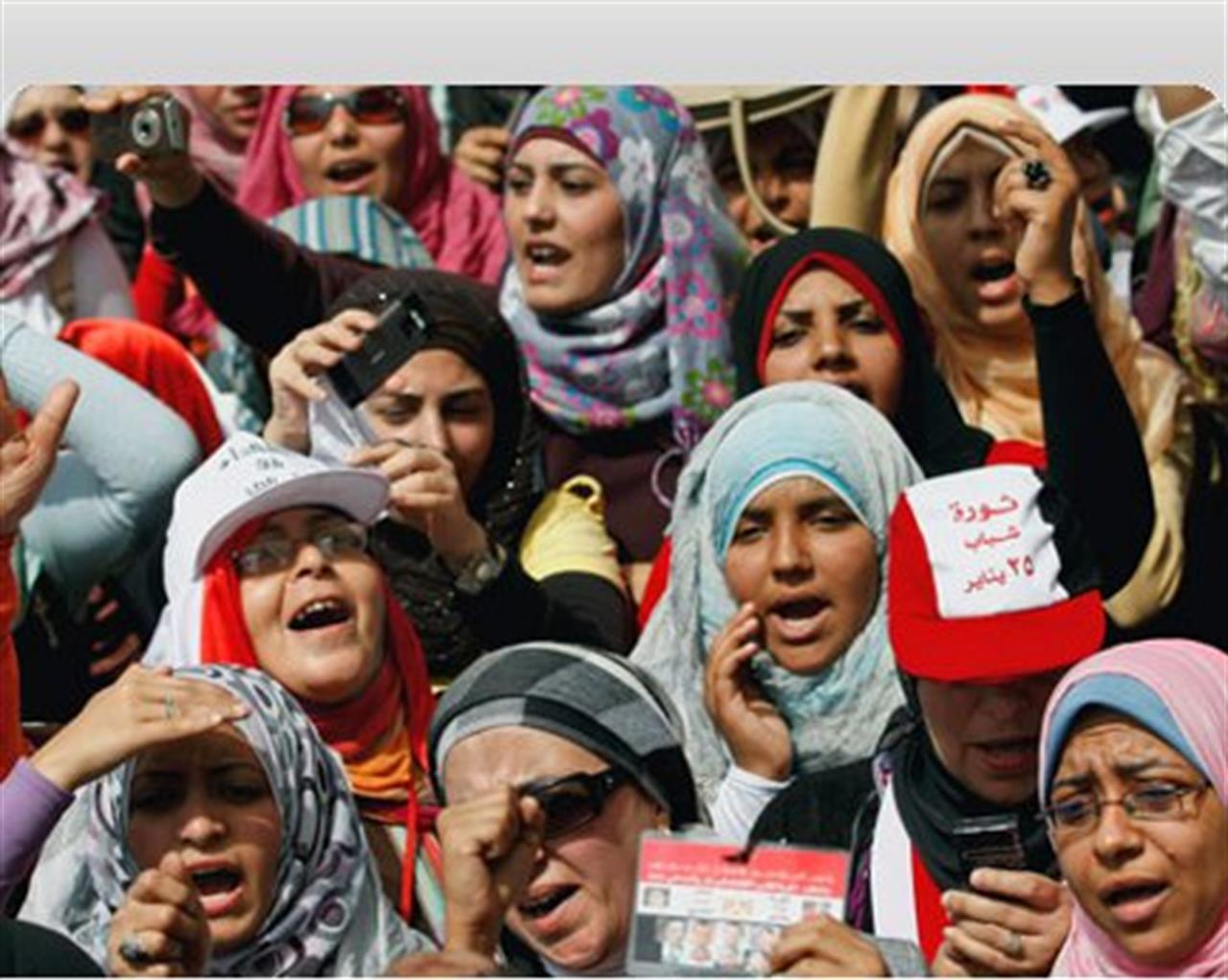Where are the women?
After playing an active part in the Arab Spring, have Arab women changed their conditions?

Arab women participated actively in the revolutions and movements for social change demanding democracy, social justice, freedom, dignity and equality. They worked hard to push for women’s rights to be guaranteed in the transitions and reform processes and for greater participation in political bodies. Regrettably political reforms since the uprising are excluding women’s rights in what is supposed to be an era of democratization. Several worrying setbacks are witnessed during this time of transition and reform varying from reaffirmations of women’s reproductive role in the Jordanian constitution instead of citizenship to an almost complete absence of women in the newly elected parliament in Egypt. Conservative religious powers coupled with prevailing patriarchal values have pushed women’s rights and participation backwards. Hard won advances in women’s rights are threatened and risk being swept away. Women continue to face greater marginalization and have been subjected to additional forms of violence including rape and torture. In Morocco, the level of representation of women in political bodies remains low. There is one woman only in the government formed in November 2011, compared to seven female ministers in the former government. Despite enshrining of principle of equality in the new constitution women managed to secure only 16% of parliament seats. Many discriminatory provisions of the Family Code (Moudawana) and other discriminatory laws are still in force. The implementation of this Code also remains limited, despite the enactment in the new constitution of an “Authority for equality and the fight against all forms of discrimination”.
In Egypt, women were excluded from the constitutional reform committees; a government reshuffle reduced the number of women ministers from three to two; and the parliamentary quota for women representation was abolished. Following the 2011 elections, female representation in the lower house was reduced from 12% to 1.5 % of the 508 seats. Moreover, women were subjected to many violations during their participation in the protest movements and demonstrations, including beatings, virginity tests without consent, and degrading treatment. Only recently, on the fourth of May, 2012, the military police detained 16 women and girls, the youngest was 14 years, during the protests of “Abbassiya” and subjected them to severe beatings and threats of rape, while under investigation before the military.
In Tunisia, women have been subject to acts of violence committed by Salafi groups including attacks on woman teachers and students in universities, without an active reaction from the new government. Only between two and three women were represented in the transitional governments compared to four in the 45 members’ government under the past regime.
In Jordan, recent amendments of the Constitution mean that no legislative changes advancing full implementation of women’s rights can be achieved. A new paragraph was added, reinforcing the traditional role of women to be “protected” and subjected to control” . The new electoral law kept the level of representation of women to 10%. The new government of Jordan includes only one woman out of 30 ministers.
On top of this, women’s rights organisations and associations promoting and supporting gender equality are faced with suppression and defamation. Particularly in Egypt restrictions have been imposed by governmental bodies on their activities. Activists in Egypt and, to a lesser extent, Tunisia are subjected to verbal and physical violence, death threats and defamation by extremists’ parties and certain media. Nawla Darwish of New Woman Foundation (Egypt) expresses deep concerns regarding a draft NGO law which would curtail freedom of association and expression even more. “Our organization does not have access to its funds since some months; we will have to close if this continues” Nawla stated.
Highly concerned with the marginalisation of women, 25 activists representing human rights and women’s rights organisations in the Euro-med region, met in Nicosia on 26-28 April 2012 to discuss how to mobilise and join forces to counteract this worrying trend. At the opening hosted by the Mediterranean Institute for Gender Studies, the Cypriot Foreign Minister Erato Marcoullis Kazakou, the Head of the European Parliament Office in Cyprus Tasos Georgiou and the new Head of European Commission Representation in Cyprus George Markopouliotis expressed their commitment to promote and enhance women’s rights in the region.
The importance of inscribing women’s rights in the constitutions and legal frameworks in the countries of the region was reaffirmed as well as the importance to secure and increase women’s political participation, to engage in the promotion of economic and social rights of women, and to fight against gender based violence. Solidarity between women in the Arab world and in Europe was highlighted because the regions are interlinked and because women are the first to suffer whether from marginalisation in the political processes or in relation to the economic crisis.
Participants concluded with determination more than ever to stand against the continuous exclusion and marginalization of women. “In the 21st century, no state can aspire to be a democratic state without women having their legitimate place in decision making bodies and full rights enshrined in Constitutions”, said Magali Thill of the Euro-Mediterranean Human Rights Network. Women were shoulder to shoulder with men in the revolutions aimed at toppling dictatorships and fighting for freedom – their contributions should not be rewarded with marginalization and loss of their rights.
This is a press release issued by the Euromediterranean Human Rights Network (EMHRN). EWL members in Cyprus, the Mediterranean Institute of Gender Studies (MIGS) is an active member of the EMHRN and its Gender Working Group. For more information please contact Christina Kaili at christina@medinstgenderstudies.org.
Vuoi accedere all'archivio di VITA?
Con un abbonamento annuale potrai sfogliare più di 50 numeri del nostro magazine, da gennaio 2020 ad oggi: ogni numero una storia sempre attuale. Oltre a tutti i contenuti extra come le newsletter tematiche, i podcast, le infografiche e gli approfondimenti.
